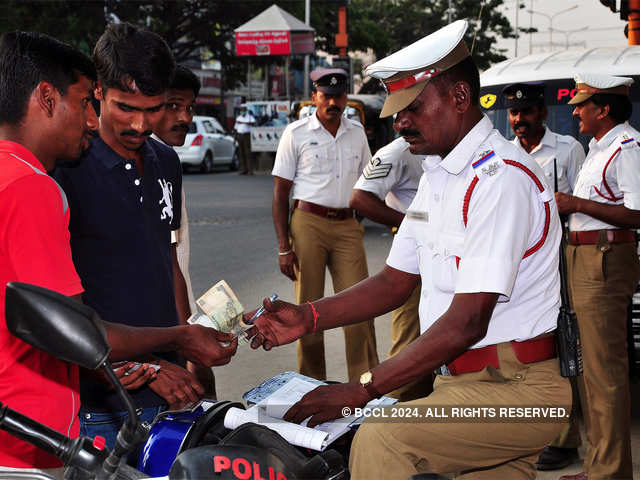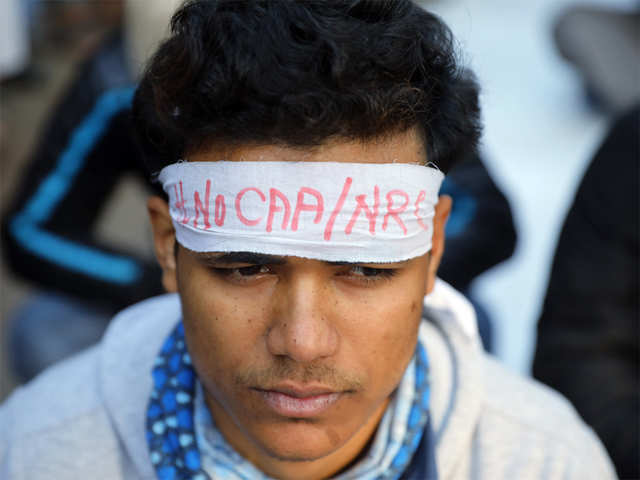Chartered Accountant ( 公認会計士) (공인 회계사 )(CONTABILISTAS) (CONTADORES PÚBLICOS) (ДИПЛОМИРОВАННЫЕ БУХГАЛТЕРЫ СЧЕТОВОДИТЕЛИ) (会计师事务所) (COMPTABLES CHARTERES) (WIRTSCHAFTSPRÜFER) (сметководители) (MUHASEBE MÜTEAHHİTLİĞİ) (محاسبون قانونيون) (CHARTERED AKUNTAN)(Geoktrooieerde Rekenmeesters)(registeraccountants)(RAGIONIERI REGISTRATI)חשבונות רואי חשבון) (This blog is non-commercial and is used here to put important news only for the educational purpose of Students doing CA and CS.
Tuesday, December 31, 2019
IMPORTANT BILLS PASSED BY INDIAN PARLIAMENT IN 2019
Here are some of the bills passed by the Parliament in 2019
ET Online|

1/6
A long list
In 2019, as Prime Minister Narendra Modi won the office for a second term, the Bharatiya Janata Party in power passed about 63 bills in the Parliament this year alone. Here are some of them.

2/6
The Jammu and Kashmir Reorganisation Bill, 2019
The Bill was introduced on August 5th by Minister of Home Affairs, Amit Shah in the Rajya Sabha. It aimed to reorganise the state of Jammu and Kashmir into Union Territory of India, by revoking Article 370 in the state. After the Bill, all provisions of this Constitution, as amended from time to time, without any modifications or exceptions, shall apply to the State of J&K.

3/6
The Motor Vehicles (Amendment) Bill, 2019
The Bill seeks to amend the earlier Motor Vehicles Act, 1988 regarding road safety, It was introduced in the Parliament by Minister for Road Transport and Highways, Nitin Gadkari. The Act provides a list of penalties regarding violation of road safety rules, as well as standards that have to be maintained for motor vehicles as well as permits and grant of licenses.

4/6
The Code on Wages, 2019
The Bill aimed to regulate wage and bonus payments of all employments where its industry, trade or manufacture. It was introduced in the Lower House of the Parliament by Minister of Labour, Santosh Gangwar on July 23th. It seeked to regulate four earlier laws.
BCCL

5/6
The Insolvency and Bankruptcy Code (Amendment) Bill, 2019
The Bill was introduced to amend the earlier law to provide a time-bound process for resolving insolvency in companies as well as individuals. It was introduced in Rajya Sabha by the Minister of Finance, Nirmala Sitharaman on July 24th.

6/6
Citizenship (Amendment) Bill, 2019
The Bill aimed to grant citizenship to members of Hindu, Christian, Sikh, Buddhist, Jain, and Parsi communities who have come to India from Pakistan, Bangladesh and Afghanistan till 31 December 2014. The government has also said that this new Act will be followed by the National Register of Citizens, in which Muslims will have to prove that they are original residents of India and not refugees from the three countries mentioned above.
ANI
Monday, December 30, 2019
LUXEMBOURG TO BE THE ONLY COUNTRY IN THE WORLD TO INTRODUCE FREE PUBLIC TRANSPORT FROM 1 MARCH 2020 Delano

Free transport includes trains, buses and the tram--a change which will cost some €41 million, thereby requiring an increase in revenue in the state budget through taxation.
Despite the change, Bausch said during the conference he did not believe it will lead to “everyone to suddenly use public transport”, according to our sister site, Paperjam.
He added: “I see it more as icing on the cake, which is made up of other ingredients: quality of infrastructure, coherent offer…this is a social measure.”
Discussions are to be held with regional railways in Germany, France and Belgium so that commuters will only need to pay for the part of the journey taking place outside of Luxembourg. This does not apply to long-distance, international tickets (for example, Paris or Brussels to Luxembourg).
Telecom industry is on the path to recovery, but AGR an overhang: ICRA Recent mobile tariff hike by telcos are pointing towards greenshoots of recovery in the sector. ET Bureau|Updated: Dec 30, 2019, 08.13 PM IST

NEW DELHI: Recent mobile tariff hike by telcos are pointing towards greenshoots of recovery in the sector, according to ratings agency ICRA, although adjusted gross revenues (AGR) related dues remain a major overhang.
“The tariff hikes are expected to lead to restoration of pricing power to the telcos and would result in improvement in the operating metrics of the industry,” Ankit Jain, Assistant Vice President, Corporate Ratings, ICRA said.
“We expect the industry revenues to grow by 15% in FY2020 and 18% in FY2021 to reach Rs. 2.57 lakh crore, while the industry OPBDITA (operating profit before interest, tax, depreciation and amortisation) is expected to grow by 53% in FY2020 and 21% in FY2021 to touch Rs. 75,000 crore,” he added.
As per ICRA Research, this recovery process might be protracted if the industry is required to pay a sizeable amount to the Department of Telecom in the form of retrospective AGR related dues, as per the Supreme Court order dated October 24, 2019.
Intense competition led to one of the steepest falls in the industry average revenue per user (ARPU), translating into a decline in AGR to Rs. 27,825 crore in Q2FY2020 from Rs. 38,990 crore in Q2FY2017, said ICRA.
However, the current fiscal has witnessed some stabilization of ARPU levels driven by weaning of low ARPU subscribers with the introduction of minimum recharge plans. Further, the telecom operators have announced sharp tariff hikes effective 2019, first of its kind in a long time, which will result into improvement in ARPU as well as cash flow generation.
As per ICRA estimates, the debt as on March 31, 2019 stood at Rs. 5.0 lakh crore. Due to deleveraging measures by telcos such as rights issue by Bharti Airtel and Vodafone Idea and IPO of the African operations by Airtel the debt is expected to decline to around Rs. 4.4 lakh crore as on March 31, 2020.
However, if the industry is required to pay the AGR debt including interest and penalties by January 2020, it has the potential to delay the recovery attempts, ICRA said.
However, if the industry is required to pay the AGR debt including interest and penalties by January 2020, it has the potential to delay the recovery attempts, ICRA said.
“Although, the government has announced deferral of the spectrum auction instalments for FY2021 and FY2022, resulting in a financial succour of around Rs. 21,000 crore per year for the existing players, this relief remains limited and we believe AGR dues will weigh heavily on the balance sheet of the industry,” said Anupama Arora, Vice President and Sector Head, Corporate Ratings, ICRA.
Indian economy likely to rebound in 2020: CII

NEW DELHI: India's economy is expected to rebound in 2020 on the back of measures taken by the government and the RBI coupled with easing of global trade tensions, industry body CII said on Sunday.
The chamber also suggested a flexible fiscal policy that will set a central government's target for the deficit in the range of around 0.5 to 0.75 per cent, and said it is likely to have a significant multiplier effect on the economy.
It said that as we are set to enter the new year, there are nascent signs that the economy is on a better footing than what it was in the year gone by. "With the proactive measures taken by the government and the Reserve Bank of India (RBI), industry believes that the slowdown will be overcome, and a gradual recovery will soon be in place."
"Nascent signs of recovery are noted in the form of improved PMIs (Purchasing Managers' Index) of manufacturing and services, jump in passenger air traffic, sharp moderation in the decline in sales of passenger cars, among others," said CII President Vikram Kirloskar.
He added that though the economy may continue to see a subdued GDP print in the third quarter as well, the quarters thereafter are likely to see a rebound.
According to the Confederation of Indian Industry (CII), with the initial difficulties associated with the goods and services tax (GST) and the Insolvency and Bankruptcy Code (IBC) getting gradually ironed out, the industry is hopeful of substantial benefits for the economy.
It said that while 2019 will be remembered as one where the systemic clean-up of the financial sector picked up pace, which might have resulted in "short-term pain", this tidying up will have extensive positive ramifications for the economy in the short-to-medium term.
"On balance, all these factors will have a significant bearing on growth in the next fiscal. Add to this, the easing of global trade tensions along with lagged impact of monetary easing coupled with improved transmission, and we are in for a gradual recovery getting firmly entrenched by the next fiscal," Kirloskar said.
CII believes that with the sharp moderation in growth, the time has come to adopt an expansionary fiscal policy.
"Just like our medium-term inflation target range, we can have a flexible fiscal policy target which will set a central target for the fiscal deficit with a range of around 0.5 to 0.75 per cent. The additional availability of funds may be spent on key infrastructure projects which can be implemented quickly. This is likely to have a significant multiplier effect on the economy," said CII President-Designate Uday Kotak.
"On balance, all these factors will have a significant bearing on growth in the next fiscal. Add to this, the easing of global trade tensions along with lagged impact of monetary easing coupled with improved transmission, and we are in for a gradual recovery getting firmly entrenched by the next fiscal," Kirloskar said.
CII believes that with the sharp moderation in growth, the time has come to adopt an expansionary fiscal policy.
"Just like our medium-term inflation target range, we can have a flexible fiscal policy target which will set a central target for the fiscal deficit with a range of around 0.5 to 0.75 per cent. The additional availability of funds may be spent on key infrastructure projects which can be implemented quickly. This is likely to have a significant multiplier effect on the economy," said CII President-Designate Uday Kotak.
In the subsequent years, there can be a glide path to converge to the Fiscal Responsibility and Budget Management trajectory over a 2-3-year time frame, he added.
Besides, the chamber suggested that in order to increase the tax base and ensure higher compliance, it is necessary to simplify and reduce the number of GST rates and increase its coverage.
Once it is converged, the practice of reviewing rates at every meeting of the GST Council must be discontinued. Similarly, a rational structure of customs duty needs to be in place. The principle of higher customs duty on final products with lower duty on intermediate goods and the lowest on raw materials needs to be followed, without exception, said CII.
Due date to link PAN with Aadhaar extended to March 31 This is the third time the due date has been extended by the Central Board of Direct Taxes. ET Online|Updated: Dec 30, 2019, 08.53 PM IST

The Central Board of Direct Taxes (CBDT) has extended the due date for linking of permanent account number (PAN) with Aadhaar from 31st December, 2019 to 31st March, 2020.
This is the third time the due date has been extended.
The deadline was extended till December 31 by the CBDT through an order issued in September this year.
Earlier, the deadline for this linkage was September 30. The CBDT frames policy for the Income Tax Department.
India may surpass Germany to become fourth-largest economy in 2026: Report Japan, Germany and India will battle for third position in the world economy over the next 15 years. PTI|Updated: Dec 30, 2019, 06.29 AM IST

India is expected to overtake Germany to become fourth-largest economy in 2026 and Japan to become third largest in 2034, according to a recent report by the UK-based Centre for Economics and Business Research (CEBR). It further said India is also set to reach a gross domestic product (GDP) of USD 5 trillion by 2026, 2 years later than the government's target.
"India has decisively overtaken both France and the UK to become the world's fifth-largest economy in 2019. It is expected to overtake Germany to become fourth largest in 2026 and Japan to become the third largest in 2034," the report, titled 'World Economic League Table 2020', said.
Japan, Germany and India will battle for third position over the next 15 years, according to the CEBR.
Referring to Prime Minister Narendra Modi-led government's target of taking the economy to 5 USD trillion by 2024, it said, "India is also set to reach a GDP of USD 5 trillion by 2026 - 2 years later than the current government target."
But, dark clouds gathering all over the economy are leading many to question the maintainability of the target.
Recently, former Reserve Bank governor C Rangarajan, said that at the current growth rate, reaching the USD 5-trillion GDP target by 2024-25 is "simply out of question".
Noting that Indian data revisions mean that 2019 was the year when the country's economy finally overtook the UK and France, the report said, "But, slow growth during the year has increased pressure for more radical economic reforms."
Despite the rapid ascent of countries such as India and Indonesia, it is striking how little an impact this will have on the US and China's dominant roles in the global economy, said Pablo Shah, senior economist at Cebr.
India, which till recently was hailed as the world's fastest-growing major economy, has seen growth rate decline to a six-year low of 4.5 per cent in the September quarter of 2019-20.
This has largely been attributed to the slowdown in investment that has now broadened into consumption, driven by financial stress among rural households and weak job creation.
The World Economic League Table is an annual calculation by Cebr jointly published by Cebr and Global Construction Perspectives. The base data for 2019 is taken from the IMF World Economic Outlook.
You can carry forward net loss from any unlisted shares to 8 future tax years livemint. Updated: 30 Dec 2019, 06:50 AM IST Parizad Sirwalla

I have a short-term loss of ₹1 lakh under share options for this year. Can I show this in my income-tax return? If yes, what is the procedure?
—Anthony
It is presumed that you have sold shares received by you from your employer under the Employees’ Stock Option Plan (Esop) on which perquisite tax was paid by you at the time of allotment of shares to you. Further, the shares are presumed to be Indian shares.
As per the tax return forms issued for FY19, you are required to fill ITR-2 to report this loss.
Where such shares are listed on a recognized stock exchange in India and securities transaction tax (STT) has been levied on the sale, you are required to fill the details in Schedule CG-Tab A2—“from sale of equity share or unit of equity oriented Mutual Fund (MF) or unit of a business trust on which STT is paid under Section 111A or 115AD(1)(ii) proviso (for FII)".
Where the shares are not listed on a recognized stock exchange in India, you are required to fill the details in Schedule CG-Tab A5—“from sale of assets other than at A1 or A2 or A3 or A4 above".
The net loss (which cannot be adjusted in the same FY) can be carried forward for eight future tax years (subject to prescribed conditions), which will be auto-populated under Schedule CFL.
Will long-term capital gains (LTCG) from the sale of gold bar (held for over 36 months) qualify for deduction if the proceeds are used to buy new gold ornaments?
—Niladri Kamilya
As per the Income-tax Act, 1961, a roll-over exemption can be sought against LTCG on the sale of gold bars by investing in the following specified assets, subject to the prescribed conditions and timelines:
* Under Section 54F of the Act, by investing the net sale consideration in a new residential house situated in India; and
* Under Section 54EE of the Act, by investing LTCG in units of specified notified fund.
However, there is no provision in law to provide the corresponding exemption for reinvestment in gold ornaments.
Accordingly, reinvestment in gold ornaments shall not be eligible for exemption and you would be required to discharge appropriate LTCG tax as per the provisions of the Act.
Parizad Sirwalla is partner and head, global mobility services, tax, KPMG in India. Queries and views at mintmoney@livemint.com
Sunday, December 29, 2019
Bus with 16 Indian tourists crashes in Egypt "Bus accident with 16 Indian tourists on board occurred today near Ain Sokhna in Egypt. Embassy officials are at hospitals in Suez city and Cairo. Helpline numbers +20-1211299905 and +20-1283487779 are available," the Indian Embassy tweeted taggin...

CAIRO: A bus with 16 Indian tourists onboard met with an accident near Ain Sokhna in Egypt, the Indian Embassy in Cairo said on Saturday.
In its Twitter post, the mission said that embassy officials are present at hospitals in Suez city and Cairo and attached two helpline numbers.
"Bus accident with 16 Indian tourists on board occurred today near Ain Sokhna in Egypt. Embassy officials are at hospitals in Suez city and Cairo. Helpline numbers +20-1211299905 and +20-1283487779 are available," the Indian Embassy tweeted tagging MEA, External Affairs Minister S Jaishankar and MoS for Minister of State for External Affairs.
According to Egypt's Ahram Online newspaper, at least 22 people were killed and eight others wounded when the bus collided with a truck on Port Said-Damietta highway on Saturday.
Saturday, December 28, 2019
4 financial tasks you must finish before December 31 If you still have a magnetic stripe State Bank of India (SBI) ATM-cum-debit card, on December 31 it will become useless, i.e., the lender will deactivate it. You will have to replace it with an EMV chip and PIN-based card. By Navneet Dubey, ET Online|Updated: Dec 28, 2019, 10.21 AM IST

The year 2019 will come to an end in just a few days. Most of us will be in the process of gearing up for the new year - setting the agenda for 2020, planning our investments and finances and so on.
However, did you know that there a few financial tasks that you have to complete before 2019 closes? There are four money related deadlines that fall on December 31. In this story, we tell you what these deadlines are and what the repercussions are for not completing the tasks.
Link your PAN with Aadhaar
Link your PAN card to Aadhaar else it will become invalid after December 31. April 1, 2019 onwards, the Income Tax department had made it mandatory to link PAN with Aadhaar especially while to file income tax return (ITR), unless specifically exempted. The deadline to link the Aadhaar has already been extended from September 30 to December 31, 2019.
If you do not link the two, then your PAN will become inoperative.
File your belated ITR
If you have not filed your ITR yet, you can file belated return. The deadline to file it by December 31 to avoid paying a hefty penalty. It may be recalled that Budget 2017 introduced the law of levying late filing fees under section 234F and it became effective from financial year 2017-18 or assessment year 2018-19 onward. So, if you file your belated ITR on or before December 31, you will have to pay a late filing fee of Rs 5,000.
However, you will have to pay Rs 10,000 if you file it after December 31, 2019 but before the end the relevant assessment year, i.e., before March 31 (in this case between January 1, 2020 and March 31, 2020).
Change your SBI ATM-cum-debit card
If you still have a magnetic stripe State Bank of India (SBI) ATM-cum-debit card, on December 31 it will become useless, i.e., the lender will deactivate it. You will have to replace it with an EMV chip and PIN based card. Through a tweet, SBI said that has proposed to deactivate all magnetic strip cards by December 31, 2019, irrespective of the card's validity period.
Those who have applied for the new EMV chip-based debit card and have not received it yet should visit their SBI home branch as soon as possible to switch from the magnetic card.
Pay your advance taxes
The Central Board of Direct Taxes (CBDT) has extended the deadline for payment of third instalment of Advance Tax for financial year 2019-20 for the northeastern states. The date has been extended from December 15, 2019, to December 31, 2019, amid the recent disturbances that has taken place in the North-Eastern region of India.
Mogadishu checkpoint blast kills at least 61: Official No one immediately claimed responsibility for the blast though al Qaeda-linked Islamist group al Shabaab, which is trying to topple the U.N.-backed government, regularly carries out such attacks. The Horn of Africa country has been riven by confli... Reuters|Updated: Dec 28, 2019, 03.12 PM IST

MOGADISHU: An explosion at a busy checkpoint in Somalia's capital Mogadishu on Saturday killed at least 61 people and wounded dozens, an ambulance service official said, the latest in a string of deadly attacks.
Rescuers carried dead bodies past the twisted wreckage of a vehicle and minibus taxis smeared with blood.
"So far, we've carried 61 dead people and 51 others injured. There are more casualties and the death toll is sure to rise," Abdikadir Abdirahman Haji Aden, founder of Aamin ambulances, told Reuters.
No one immediately claimed responsibility for the blast though al Qaeda-linked Islamist group al Shabaab, which is trying to topple the U.N.-backed government, regularly carries out such attacks.
The Horn of Africa country has been riven by conflict since 1991, when clan warlords overthrew dictator Siad Barre and then turned on each other.
After the sound of a huge blast at the Ex-Control checkpoint, 55-year-old Sabdow Ali,who lives nearby, said he left his house and counted at least 13 people dead.
"Dozens of injured people were screaming for help but the police immediately opened fire and I rushed back to my house," he told Reuters.
The injured were transported to Medina Hospital, where a Reuters witness saw dozens arriving by ambulance from the scene.
Speaking to reporters at the blast site, Mogadishu Mayor Omar Muhamoud said the government confirmed at least 90 civilians, mostly students, had been injured in the explosion.
Friday, December 27, 2019
Russia commissions intercontinental hypersonic weapon President Vladimir Putin unveiled the Avangard among other prospective weapons systems in his state-of-the-nation address in March 2018, noting that its ability to make sharp maneuvers on its way to a target will render missile defense useless. AP|

MOSCOW: Russia's defense minister reported to President Vladimir Putin that a new hypersonic weapon of intercontinental range became operational Friday following years of tests.
Defense Minister Sergei Shoigu informed Putin that the first missile unit equipped with the Avangard hypersonic glide vehicle entered combat duty, the Defense Ministry said.
Putin unveiled the Avangard among other prospective weapons systems in his state-of-the-nation address in March 2018, noting that its ability to make sharp maneuvers on its way to a target will render missile defense useless.
The Russian leader described the Avangard's creation as a technological breakthrough comparable to the 1957 Soviet launch of the first satellite.
Earlier this week, Putin emphasized that Russia is the only country armed with hypersonic weapons. He noted that for the first time in history Russia is now leading the world in developing an entire new class of weapons, unlike in the past when it was catching up with the United States.
The military said that the Avangard is capable of flying 27 times faster than the speed of sound.
Russian media reports indicated that the Avangard will first be mounted on Soviet-built RS-18B intercontinental ballistic missiles, code-named SS-19 by NATO. It is expected to be fitted to the prospective Sarmat intercontinental ballistic missile after it becomes operational.
The Defense Ministry said last month that it demonstrated the Avangard to a team of U.S. inspectors as part of transparency measures under the New Start nuclear arms treaty with the U.S.
The U.S. has mulled new defense strategies to counter hypersonic weapons developed by Russia and China.
U.S. officials have talked about putting a layer of sensors in space to more quickly detect enemy missiles, particularly the hypersonic weapons. The administration also plans to study the idea of basing interceptors in space, so the U.S. can strike incoming enemy missiles during the first minutes of flight when the booster engines are still burning.
The U.S. has mulled new defense strategies to counter hypersonic weapons developed by Russia and China.
U.S. officials have talked about putting a layer of sensors in space to more quickly detect enemy missiles, particularly the hypersonic weapons. The administration also plans to study the idea of basing interceptors in space, so the U.S. can strike incoming enemy missiles during the first minutes of flight when the booster engines are still burning.
The Pentagon also has been working on the development of hypersonic weapons in recent years, and Defense Secretary Mark Esper said in August that he believes ``it's probably a matter of a couple of years'' before the U.S. has one. He has called it a priority as the military works to develop new long-range fire capabilities.
Subscribe to:
Comments (Atom)











